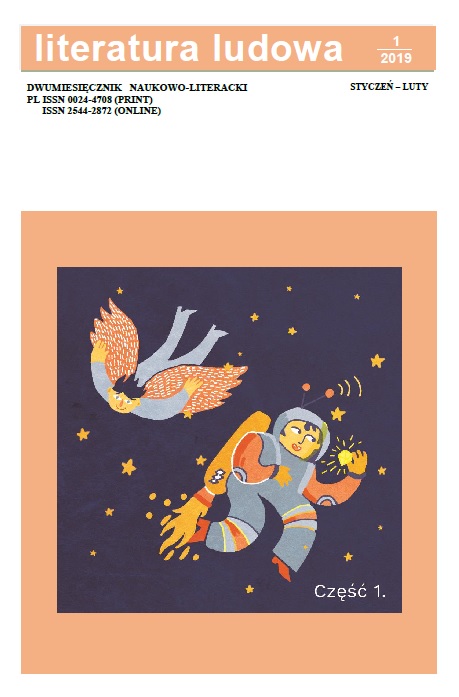I (nie) żyli długo i szczęśliwie. Konstrukcje zakończeń w polskiej literaturze dziecięcej o Zagładzie
AND THEY DID (NOT) LIVE HAPPILY EVER AFTER: ENDINGS IN POLISH CHILDREN’S LITERATURE ABOUT THE HOLOCAUST
Author(s): Krzysztof RybakSubject(s): Cultural history, Recent History (1900 till today), History of the Holocaust, History of Antisemitism
Published by: Polskie Towarzystwo Ludoznawcze
Keywords: POLISH CHILDREN’S LITERATURE; HOLOCAUST
Summary/Abstract: The article focuses on endings of selected contemporary Polish children’s books about the Holocaust. In the majority of these stories, events are set in a ghetto. Crossing its wall is a turning point for the protagonists. I understand crossing this physical boundary as a positive preview of the future, a negative sign of the end of life, and a new beginning of one’s uncertainty about one’s fate. The study is divided into three parts devoted, respectively, to the biographies of Janusz Korczak, the endings of selected texts (including XY by Joanna Rudniańska, Szlemiel by Ryszard Marek Groński and Bezsenność Jutki by Dorota Combrzyńska-Nogala) and the case study of Arka czasu by Marcin Szczygielski. The collected observations are then analyzed in the context of the happy end convention, which, according to some researchers, is strongly associated with children's literature.
Journal: Literatura Ludowa
- Issue Year: 63/2019
- Issue No: 1
- Page Range: 10-23
- Page Count: 14
- Language: Polish

